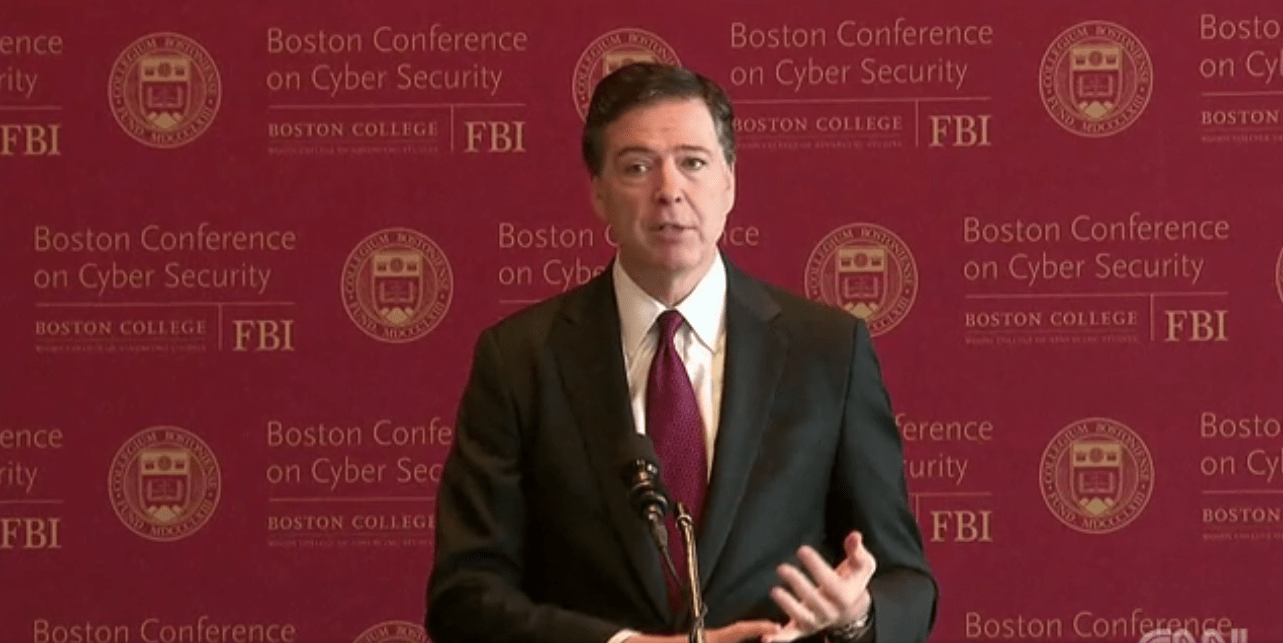The FBI was unable to access the contents of “nearly half” of mobile devices it tried to hack in the first half of the fiscal year, FBI Director James Comey revealed at a Senate oversight committee hearing this week.
That added up to more than 3,000 mobile devices.
In a written statement, Comey said that the FBI was unable to gain access to mobile devices using, “appropriate and available technical tools, even though there was the legal authority to do so.” Comey didn’t reveal how many of these cases related to counterterrorism. Nor did he reveal which handsets the FBI has difficulty accessing.
Although the FBI has been able to unlock devices, including iPhones, in the past using case-by-case investigative workarounds, he noted that these have the problem of being both, “difficult to scale” and “perishable due to a short technical lifecycle.”
James Comey said that the FBI has had, “very good open and productive conversations with the private sector over the last 18 months about this issue.” He noted that he, like everyone else, “love[s] privacy,” but that it was important to “work with the manufacturers” of handsets to work out how to enable the FBI to gain access to devices.
During the same hearing, Senator Dianne Feinstein — who previously attempted to pass a bill designed to force tech companies to decrypt customer data in accordance with court orders — also suggested she will try again. Her previous attempt was withdrawn last year after failing to drum up enough support.
Apple vs. FBI
The issue of mobile device encryption was a big story last year, due to a case involving San Bernardino shooter Syed Rizwan Farook’s iPhone 5c, which investigators were unable to unlock due to Apple’s encryption. While they did eventually manage to do so, and the device turned out to be largely useless in the investigation, the incident caused a standoff between Apple and the FBI.
Tim Cook himself got involved, writing an open letter on the subject, in which he argued that forcing Apple to create a government backdoor to one of its devices represents an, “unprecedented step which threatens the security of our customers.”
The issue also caused a clash between Apple and then-Presidential candidate Donald Trump, who even went as far as calling for a boycott against Apple.
Source: TechCrunch


